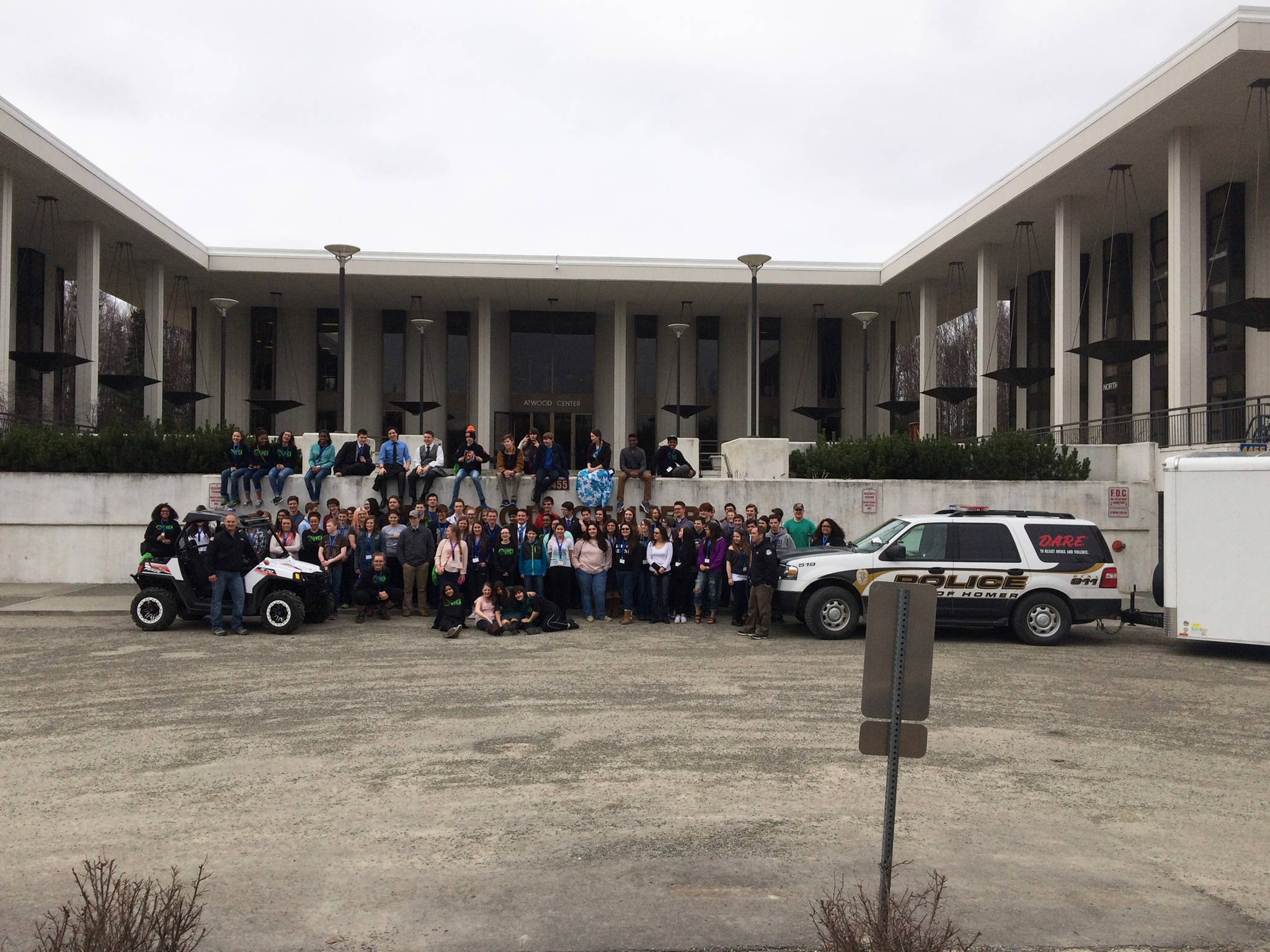One would be hard pressed to find a police station in the country for which drunk driving is not an issue in the community. The same goes for the Homer Police Department, and to tackle that issue, its staff are taking their efforts off the streets and into the schools.
Since 2011, the department has run an educational clinic for high school students called Project Drive. The teens don vision-impairing goggles before getting behind the wheel of a side-by-side all-terrain vehicle to traverse a course, so they get to experience just how dangerous it is to drive drunk.
The Alaska Highway Safety Office recently continued its support of the department’s program this year, awarding it a $39, 488 grant. This is the third year the program has received state funding, said Sgt. Ryan Browining, who helped create the program and is currently an instructor for it.
Teenage drivers make up about 5 percent of all of Alaska’s drivers, according to a release about Project Drive from the city, but they make up more than 20 percent of total motor vehicle fatalities in the state. They are also involved in 30 percent of accidents with major injuries. According to the release, 17 percent of fatal and major injury crashes in the state involve a teen driver under the influence of alcohol.
Browning said he and another officer in 2011 knew they wanted to get into the schools to address the issue with the teens themselves, so they created Project Drive.
“It’s interesting because it’s a fun program, you know, where they get to drive,” he said.
Originally, the program was confined to Homer High School’s freshman health class in conjunction with one of the class’s existing units, Browning said. From there, it has branched out and started reaching more schools including Homer Flex, Ninilchik and some of the Russian Old Believer schools.
Browning and the program instructors have also been invited to present in Anchorage and Palmer since Project Drive began expanding with the help of state funding. The grant itself covers overtime for Browning and the instructors, as well as funds for travel and food when they take the program on the road. It also covers general maintenance on their equipment, like the side-by-side and the trailer it’s hauled on. When it comes down to the program itself, Browning said classes of students are split in half. One half learns about alcohol impairment and the legal driving limit, while the other half traverses the driving course with the vision-impairing goggles. The goggles can simulate anywhere from a .08 blood alcohol content to .12, which Browning said is basically a six-pack of beer.
A benefit of the program is that it keeps the kids engaged. When they put on the goggles and try to drive, “every single one of them goes, ‘Oh, woah!’” Browning said.
About 150-200 students go through the program each year, he said. The goal for 2018 is to increase that number, as well as travel to the Southeast to put on Project Drive in Juneau and the surrounding communities, Browning said. Browning said he and his coworkers know they won’t stop teenagers from drinking. Their goal, he said, is to impress upon them the importance of staying away from the driver’s seat when they do. From 2014-2017, the annual average number of minors consuming alcohol in Homer has decreased from 16 to 5.8, according to the city release. The annual average number of minors charged with operating a vehicle after drinking has also gone down, from 7.8 to 3.2. Additionally, the average annual DUI arrests in Homer have dropped from 102.6 to 75.8.
“When we started this, I would have never believed that we’ve made the difference that we have,” Browning said.
In 2018, Browning said Project Drive instructors hope to see those statistics drop even further. At its Monday meeting, the Homer City Council adopted an ordinance that allows the city to accept the Alaska Highway Safety grant. The state awarded $39,488, requiring a local match of $4383.20, according to the ordinance text, which was included in the 2017 budget.
Reach Megan Pacer at megan.pacer@homernews.com.


